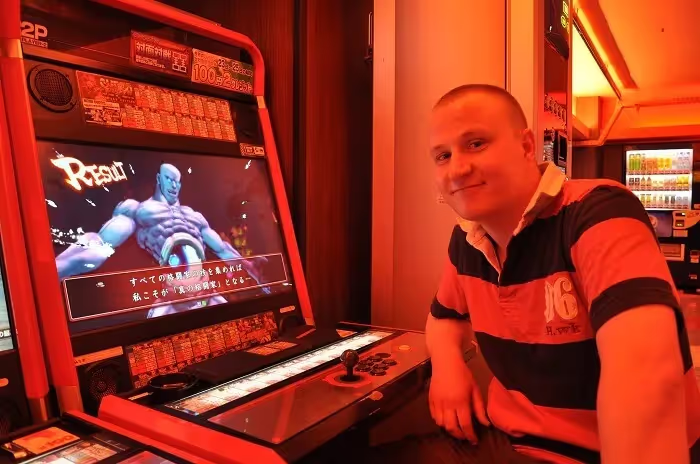A regular look at gaming-related stories from the past week or so whereby conclusions are drawn from anything and everything. These may be incredibly well reasoned based on events from the week. Alternatively, they may be highly speculative, drawn from very little evidence. More likely, they will be somewhere in between.
Conclusion One: Super SMASH(ed it) Bros. Ultimate
Recently we told you the news about Super Smash Bros. Ultimate knocking Street Fighter and Capcom off their perch, based on the fact that Nintendo’s brawler was going to be the game used in the final of the fighting games competition, Evo.
It went very well:
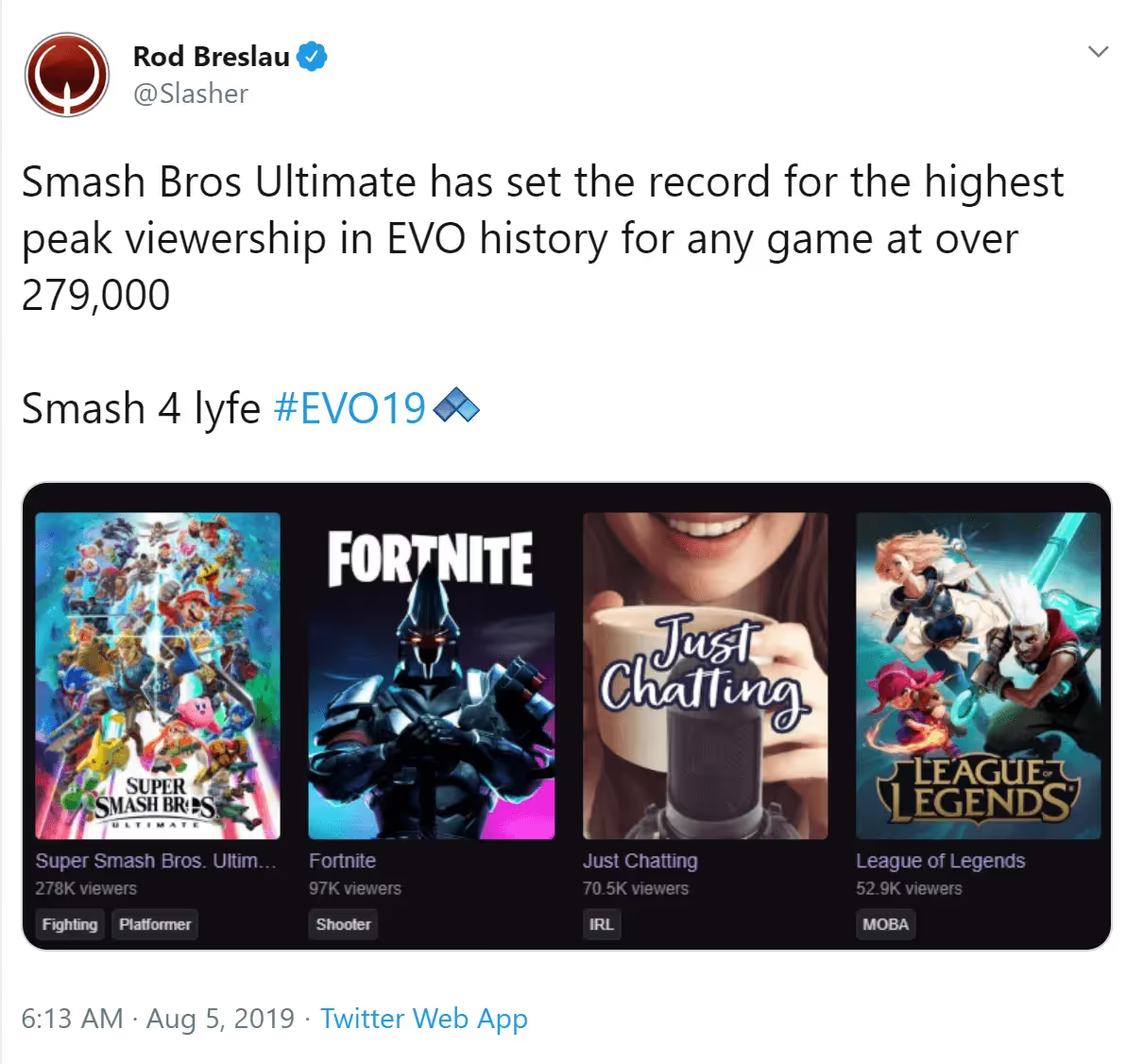
Evo, or to give it its full title The Evolution Championship Series, has been around since 1996 and is a fighting game eSports championship. It’s a large thing, the biggest for beat ‘em ups right now, and for Smash Bros. to take the headline spot from Street Fighter is a big deal which will not have happened on a whim.
The calculated decision has been proven a good one based on these viewing figures. It shows the confidence the community leaders had in the game, as it was also the first year Ultimate had been played instead of the older Melee. Mario and company have definitely smashed it, haven’t they?
Conclusion Two: Games always suffer at politicians' hands
So this Saturday just gone we heard about another mass shooting in America, this time in a Walmart store in El Paso, Texas. To date, twenty-two souls have lost their lives in this latest gruesome affair, alongside nine more in a further shooting in Dayton, Ohio on the very same day.
Apparently it’s the fault of video games. Again. As reported in The Independent President Donald Trump was quoted as saying:
"We must stop the glorification of violence in our society...This includes the gruesome and grisly video games that are now commonplace.”
“It is too easy today for troubled youth to surround themselves with a culture that celebrates violence. We must stop or substantially reduce this, and it has to begin immediately."
Right. So before anyone had a chance to actually interview the killer, presumably, the President had concluded video games were to blame. Not gun laws? The New York Times provided the following gem this week:
“...evidence was clear that violent video games are not a risk factor for serious acts of aggression. Neither are violent movies, nor other forms of media.”
“The data on bananas causing suicide is about as conclusive,” said Dr. Ferguson. “Literally. The numbers work out about the same.”
So yes, definitely the games then.
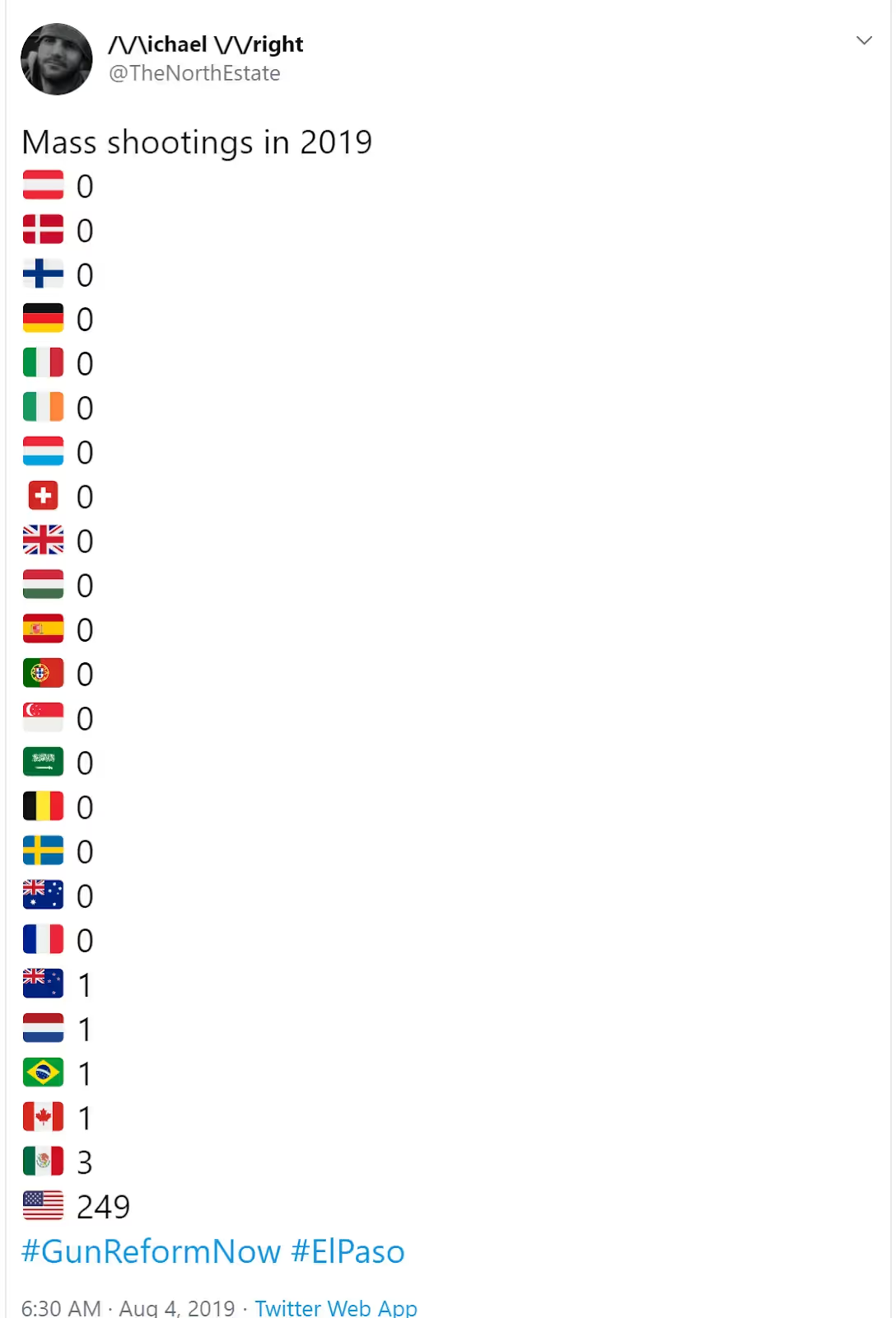
No, it must be video games as it’s not like America has more than its fair, weighted share of these atrocities now, is it? That must also mean that America has more than its fair share of video games, right? Actually it’s even more extreme - some countries, like Japan for instance, don’t have ANY video games:

Seriously, these are the people elected to office in America? I understand that not everything can be known by everyone, but the leader of the GOP should know Japan has video games and the leader of the free world shouldn’t peddle untruths so unashamedly. I guess that’s the way of the world, right now though, isn’t it? Well, it shouldn't be. Games do not cause violence, and nor do mental health issues. Each of these things, and more, may be a part of the life of any of these mass murderers. Also, they might not. Doing something about games will not stop mass shootings as they are not the cause. Politicians suggesting otherwise, supported by ill-informed understanding, is wrong and further suppresses the role video games have to play in many people’s lives for good.
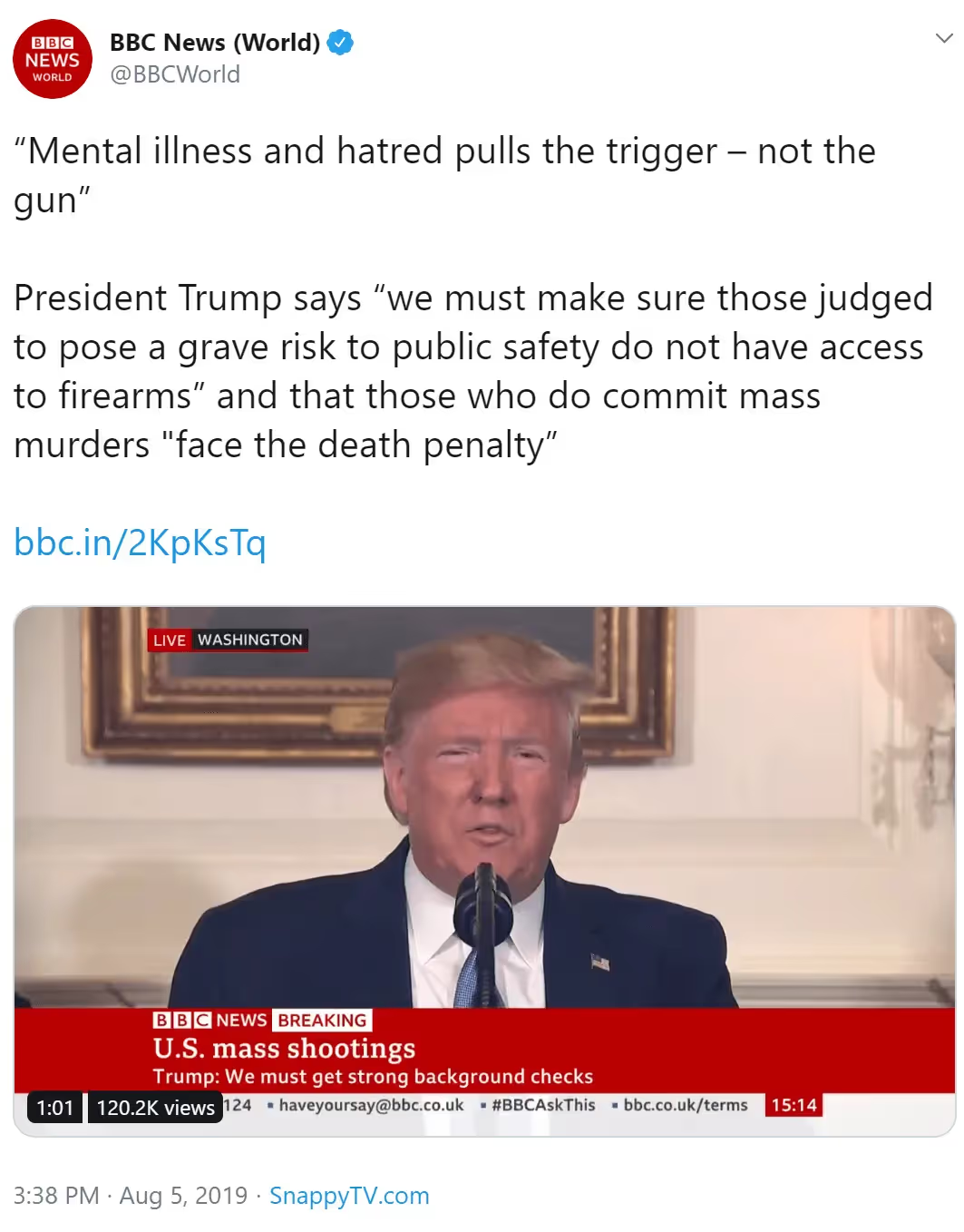
Conclusion Three: Boom - loot box safeguards move in the right direction
I don’t know how often we have talked about loot boxes at Jump Dash Roll. It feels like every week. This week we have some good news around the situation. First, let me provide a quick precis of the current state of affairs:
Loot boxes are in all kinds of games in one form or another in 2019: actual boxes of loot in gaming platforms such as Fortnite and Destiny 2, or packs of players you can use in FIFA Ultimate Team. Now, when a box is obtained as a reward for playing through the daily grind, all is fair with the world. When it’s in return for money via a microtransaction, things get messy. Consider the FIFA example — everybody wants a Messi or Ronaldo, or perhaps a Pele Icon. They’re the best cards in the game and if you were to play to win, you’d need to amass tens or hundreds of hours of gameplay to gather the coins needed to get one of them on the game’s transfer market.
Or you can pay money for FIFA points, open a pack and hope. We’ve always known the odds are low of getting one of the above, but until recently in some regions, not how low. This is important information because it allows for an informed decision about whether to gamble that money in the hope you get what you need (not that the UK classifies this as gambling).
Anyway, Sony, Microsoft and Nintendo — the holders of the keys to the gamer via their wide array of fabulous console hardware — have come together to instigate some rules themselves. Namely, according to gamesindustry.biz, that loot box odds disclosures be a prerequisite for games running on their units.
Entertainment Software Association chief counsel of tech policy Michael Warnecke shared the following:
"I'm pleased to announce this morning that Microsoft, Nintendo, and Sony have indicated to ESA a commitment to new platform policies with respect to the use of paid loot boxes in games that are developed for their platform. Specifically, this would apply to new games and game updates that add loot box features. And it would require the disclosure of the relative rarity or probabilities of obtaining randomized virtual items in games that are available on their platforms."
"As well, many of the leading video game publishers of the Entertainment Software Association have decided that they are going to implement a similar approach at the publisher level to provide consumers this information and give them enhanced information to make purchase decisions."

The intent is to have these policies in place by 2020, and it follows Apple doing this in 2017 and Google last year.
It’s one step towards regulating loot boxes and helping gamers and their families better understand what’s happening, take informed choices and manage the situation. It’s not perfect — in a global world full and proper regulation of what is gambling, accessible by children, is hard, essential and seemingly far away. At least now it’s that little bit closer.
Conclusion Four: The Nintendo Switch is looking Sharp
Sometimes, on very rare occasions, sub-editors have some serendipitous headline drop into their heads. The one which always jumps into my mind is that of some Scottish newspaper one year after Celtic performed badly against Caledonian Thistle. The headline?
“Super Cally go ballistic, Celtic are atrocious”
Game over, you’ve won — go home and dine on that for the rest of days. Now, I’m not saying mine’s quite as good but just look at the above conclusion and then read on:
Nintendo will be using Sharp’s IGZO displays in their Switch consoles ongoing, reports the Wall Street Journal. Good, yes? Indulge me. It sounded good in my head.
What are IGZO displays and why is this relevant? Aside from the fact that your future home and handheld console will use them, they’re a new form of display technology. Using a semi-conducting (really good for controlling electric currents) Indium Gallium Zinc Oxide material (so technically InGaZnO then - Ed.) the tech provides all kinds of benefits including higher resolutions, lower power consumption and durability.
Three things Nintendo would clearly be interested in to enable better quality Switch displays with better battery life whilst still maintaining the bullet-proof exterior common to all Nintendo products. Once again, the big red one is doing things its own way, and keeping one step ahead of the competition at the same time.
Conclusion Five: This anti-Epic sentiment is both ridiculous and worrying.
For reasons that we're still yet to fathom, a section of the gaming community really doesn't like the Epic Games Store. As the sole platform with enough heft to compete against Steam, this free software launcher which is free to sign up to and install and which gives away free games on a regular basis (this week: GNOG, Alan Wake and For Honor), has somehow brought out the very worst in a minority of people.
EGS has a lot of things that are attractive to small developers. It takes a far smaller cut of a game's profit, it promotes their game — much like Steam does — and it pays some cash upfront to ensure that the devs can continue to improve their game and carry on paying the bills, rather than releasing and hoping for a hit. It's a reasonable, and very attractive alternative to Valve's offering.
So when a small two-person indie developer Glumberland posted a blog update telling the world that they had signed a deal with Epic to exclusively host the PC version of their game Ooblets, they probably weren't expecting the level of bile, hatred, racism and violence directed at them. Nor should they have.
Yet, this is exactly what happened, as PC Gamer reported this week. Some of the things that were directed at this husband-and-wife team are sickening. Trying to engage with that portion of the community was pointless, as Ben found out when comments of his were distorted and misrepresented, before finally being fabricated to make him look like he himself was posting hate.
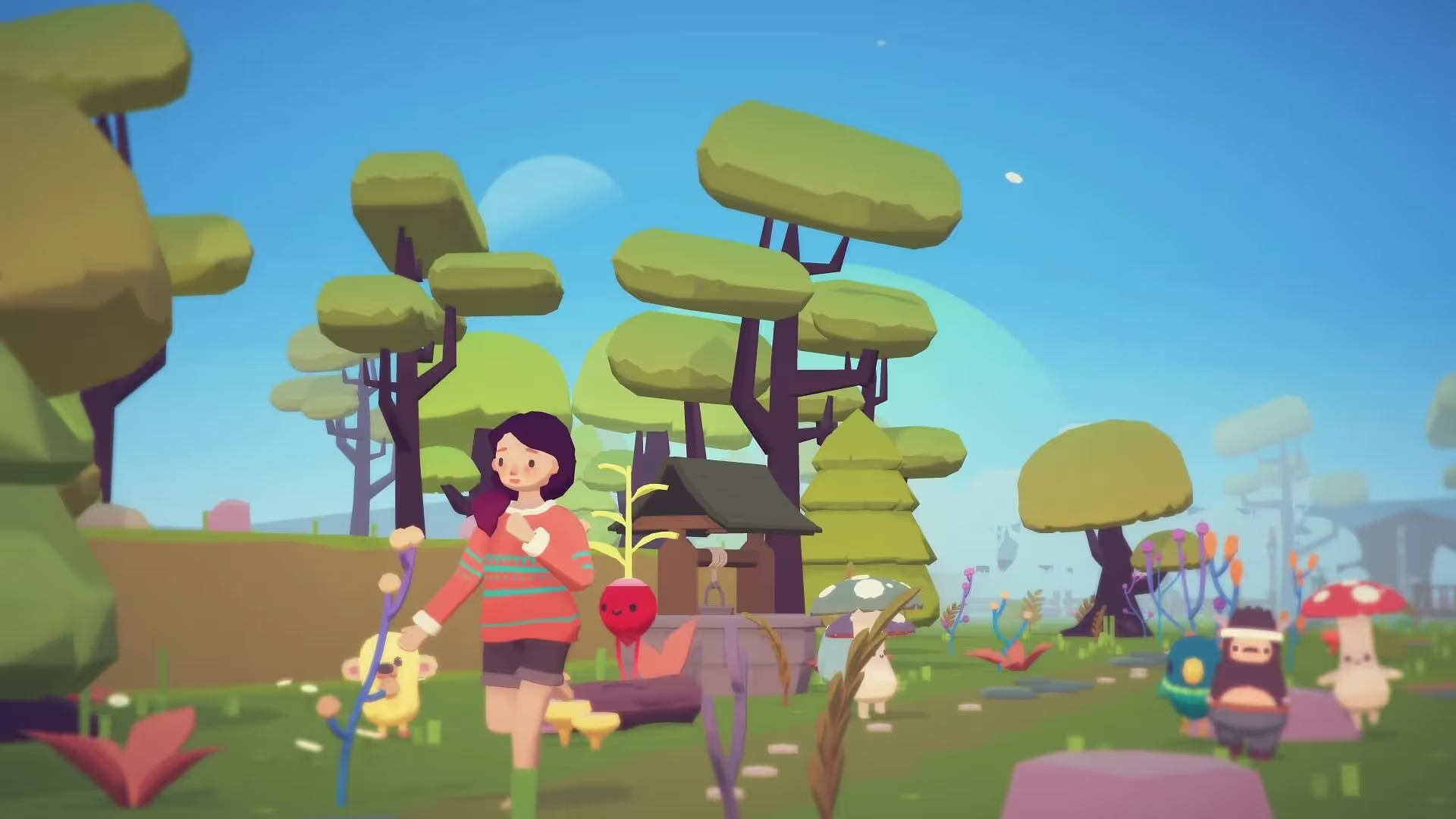
Ben posted a response to this entire episode which I'd urge you to read. It contains just a few of the things that have been directed at him and Rebecca since he made the "shocking" announcement of joining Epic to help sell a game that the pair of them have worked on for years. And how has doing this impacted gamers? In what way have they been "betrayed"? They haven't. It is a ludicrous and frankly concerning standpoint taken by troubled and extreme individuals with an ill-deserved sense of entitlement.
Thankfully, they are not representative of the community as a whole. But as this saga has shown, they do exist. Epic, for its part, has stepped up to support the pair in the wake of the deluge of sick filth being flung at them — which again shows that the company has got the back of small indies, and isn't just a machine flinging money at something and then ignoring it. If anything, it shows that Glumberland made the right decision. No-one is forcing you to buy the game. If you want to buy the game, EGS is, as I mentioned, free. And hey, if you don't like it, buy it on Xbox. But if you're so utterly twisted that you think hurling abuse at people you've never met from behind a screen is the best response to what is — at best — a mild inconvenience, you should probably not be allowed near a PC in the first place.
You can subscribe to Jump Chat Roll on your favourite podcast players including:
Let us know in the comments if you enjoyed this podcast, and if there are any topics you'd like to hear us tackle in future episodes!

